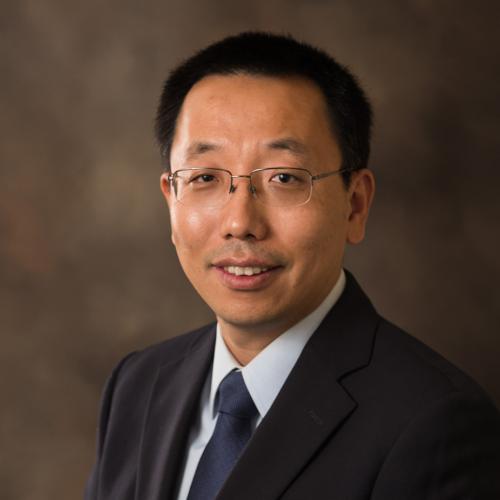Members of Associate Professor Dong Wang's research group, the Social Sensing and Intelligence Lab, will present their research at the 25th ACM Conference on Computer-Supported Cooperative Work and Social Computing (CSCW 2022) and the 2022 IEEE/ACM International Conference on Advances in Social Network Analysis and Mining (ASONAM 2022).
CSCW 2022, which will be held virtually on November 8-22, is the premier venue to present and discuss progress in research, development, standards, and applications of topics related to the computer-supported cooperative work and social computing.
Postdoctoral researcher Yang Zhang will present three papers, "CrowdOptim: A Crowd-driven Neural Network Hyperparameter Optimization Approach to AI-based Smart Urban Sensing," "CrowdNAS: A Crowd-guided Neural Architecture Searching Approach to Disaster Damage Assessment," and "CrowdGraph: A Crowdsourcing Multi-modal Knowledge Graph Approach to Explainable Fauxtography Detection," which he coauthored with Wang and PhD students Ruohan Zong, Lanyu Shang, and Huimin Zeng. The papers describe the series of principled crowd-AI collaborative learning frameworks developed by Wang's lab. These frameworks utilize the human intelligence from online crowdsourcing systems to effectively design, configure, and troubleshoot AI models to improve the performance and explainability of the models in addressing complex real-world problems such as smart urban infrastructure monitoring, disaster damage assessment, and online misinformation detection.
ASONAM 2022, which will be held in Istanbul, Turkey, on November 10-13, brings together researchers and practitioners from a broad variety of social media-related fields to promote collaborations and exchange of ideas and practices.
Shang and Zeng will present the papers, "A Knowledge-Driven Domain Adaptive Approach to Early Misinformation Detection in an Emergent Health Domain on Social Media" and "Unsupervised Domain Adaptation for COVID-19 Information Service with Contrastive Adversarial Domain Mixup," which they coauthored with Wang. Their work focuses on the early misinformation detection problem in emergent healthcare domains, such as the outbreak of COVID-19 and Monkeypox, where a very limited amount of labeled data is available for training effective misinformation detection models. The researchers develop a series of domain adaptive misinformation detection frameworks to leverage the rich set of labeled data and/or medical knowledge facts from existing misinformation domains, such as celebrity rumors and well-studied diseases, to accurately identify misinformation in emergent healthcare domains. These frameworks were shown to be effective using multiple real-world datasets. The outcome of this work could mitigate the spread of online misinformation and reduce the negative impact of healthcare misinformation on the well-being of the general public.
The primary research focus of the Social Sensing & Intelligence Lab lies in the emerging area of human-centered AI, AI for social good, and cyber-physical systems in social spaces. The lab develops interdisciplinary theories, techniques, and tools for fundamentally understanding, modeling, and evaluating human-centered computing and information (HCCI) systems, and for accurately reconstructing the correct "state of the world," both physical and social.
